Local Government Spotlight: An Interview with District J Council Member Edward Pollard
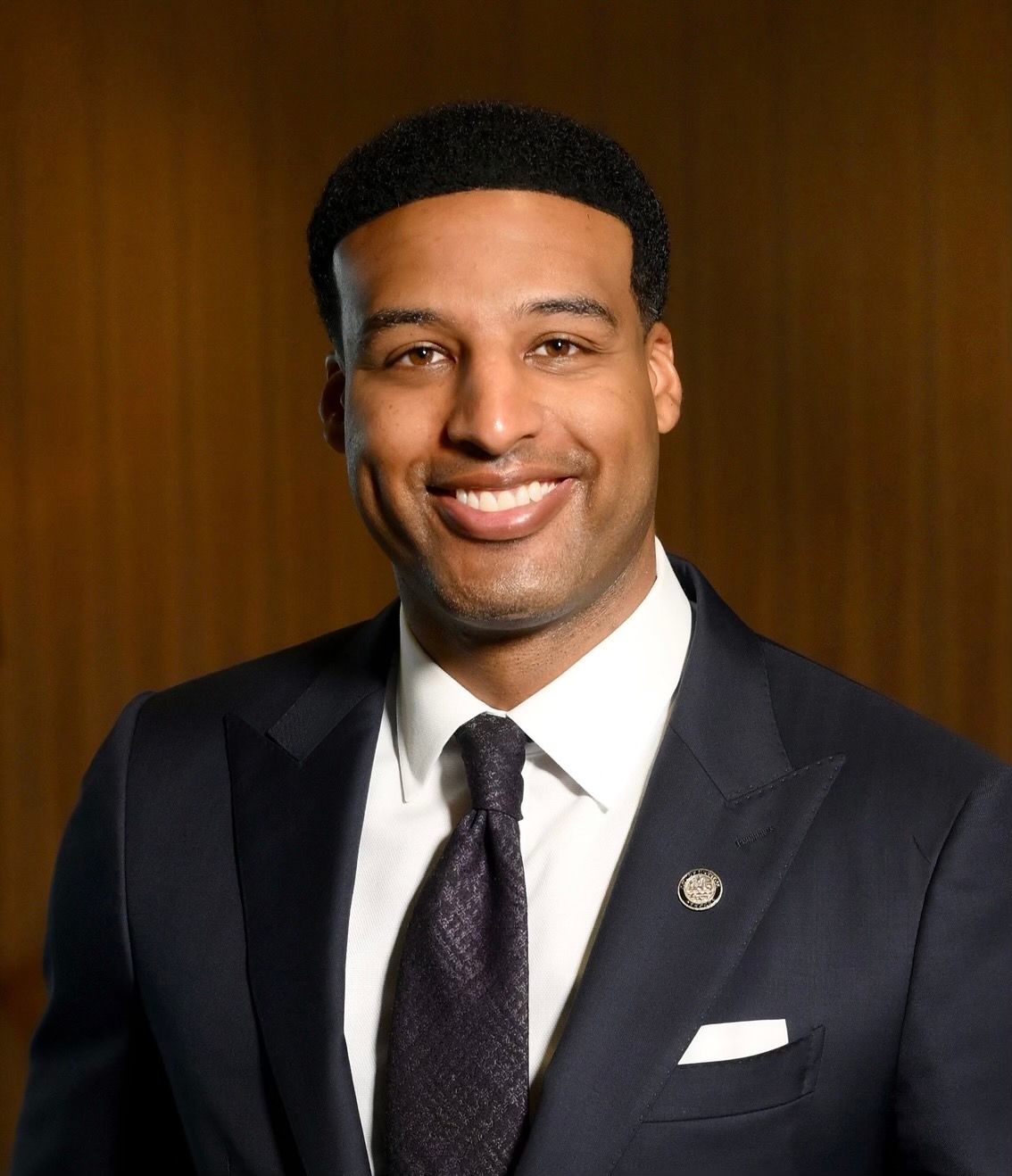
It’s easy to lose sight of what’s happening in our own backyards. After all, most media outlets focus on state, national, or international politics. We’re constantly being told about what’s going on in Texas, America, or the world—but what about what’s going on in Sharpstown?
And if we’re honest with ourselves, how well do we know the officials in our local government? For me, until about one year ago, the answer was “Not at all.” That needed to change.
That’s one reason I started the Sharpener. It’s important for the whole community to know who our elected leaders are, what they’re doing, and what they stand for. After all, they make decisions that directly affect our lives.
Most of Sharpstown is in City Council District J. Last week, intern reporter Kace’ Conaway and I visited District J Council Member Edward Pollard’s private law office for a forty-five minute interview.
Sitting behind his desk, Pollard wore a blue button-down and silver tie. A black-and-white globe stood on the bookshelf behind him.
We’ve already published the section of our interview that dealt with the police blockade of the Bissonnet Track. Here are some other highlights from our conversation:
Conaway: I attended…the Tuesday council meeting [last week]…and you made a comment that we put in ordinances that are constrictive and there are little flexibilities for people’s issues in those ordinances…and I was wondering what makes the ordinances so constrictive and what would be the game plan to change that if you could?
Pollard: So a lot of our ordinances, like any law—sometimes they come with unintended consequences. I’m a lawyer, so I always want to find ways in which we can have some flexibility and discretion on what we have. So instead of it [an ordinance] saying “must,” maybe it says “may.” Maybe instead of it saying “and,” it says “or,” or “and/or.”
But I definitely think that the language that we have should allow the city to be very flexible when it comes to what we can enforce, how we enforce, and make it easier for residents to try to maneuver some of the stringentness of City Hall…
Many times you’ll have an ordinance on the books that’s just so black-and-white that it doesn’t make sense for every single situation, and even the way we design our city or the way we think about public safety…what works in Sharpstown may not work in the Heights…
We have to be much more flexible in our approach, much more open in the way we write policy, so that even we as legislators would have an opportunity to say, “Okay, this makes sense—let’s go ahead and change it,” rather than saying, “I’m sorry; we can’t do anything about it; the ordinance says XYZ,” when actually, we’re the city—we created the ordinance.
So if we know there’s some unintended consequences that the ordinance made, then we should go back and revisit that to see how we can make it a little more loose.
Korsmo: More flexibility in the language of city ordinances—would that possibly include ordinances that only apply to certain districts or certain neighborhoods?
Pollard: No…I think that everything should be [a] kind of city-wide approach with the option to customize. And the mayor actually used the word “customize” last year in his State of the City address—he said he wants a city that’s customizable. But at the moment it’s not customizable…
Conaway: [At a recent budget meeting,] the controller was stressing that the funds y’all got during COVID were running out and we needed to find new forms of revenue to replace that, and you were very adamant about Houston being resourceful and finding different ways to get that income... I was wondering if you had any concrete ideas of where that revenue would come from.
Pollard: I wouldn’t put out any of my concrete ideas right now because I want to kind of save those. But…we’re always going to be faced with some kind of financial or fiscal challenge. Nothing’s ever going to be perfect. And yet we’re still standing, yet the city is still thriving…
I do think that, for instance, the COVID dollars are going to probably run out, they estimate like 2025 or so… But who knows what’s going to happen? [In] 2026 we’re going to have…the World Cup. They think that the World Cup is equivalent to eight Super Bowls. What will the economic impact to the city be for that? What are the sales tax numbers going to be for that? What are the hotel occupancy tax numbers going to be for that?
There’s always something there, it seems like, that will get you to the next spot, just like in our lives… You have a certain amount of money that you depend on each month. Something happens, you know, unexpected: “…I gotta spend an extra few hundred dollars here...” [You’re] down for a little bit, whatever-whatever, your birthday comes—lo and behold, you didn’t know, and your mom gave you a card with 400 bucks in it—you [weren’t] expecting it—boom…
Things happen, and you start to kind of balance out. And I think that’s how the city is. It’ll never be perfect. We always strive to make it as fiscally sound as possible, but I think no matter what happens, somehow, some way, we figure out how to use the most with what we have.
Korsmo: What would you want Sharpstown to be like in ten years?
Pollard: So in ten years, it would be great to see Sharpstown really be recognized for the diversity that’s truly there, and I think we can create that through food. I think we have so many culturally diverse, authentic cuisine, small business restaurants within Sharpstown… But many people even around Sharpstown don’t know that hidden gem that’s there. I mean, on one block you can have Columbian and the next one you have Ethiopian and the next one you have Indian, and then you have Chinatown…
How can we utilize that cultural diversity—through food—to bring more economic impact, to bring more engagement, more dialogue, more openness toward one another? How can we use it as a tourist destination for when people come into the city they want to come to Sharpstown? “Oh, we heard Sharpstown is the place that has the great food. Yeah, Sharpstown is the place that has the diversity and different shops and the karaoke bar.”
…We’re the most diverse city in the country, and then District J is the most diverse area of the most diverse city. Then we can arguably say that we’re the most diverse area of the entire country. If that is the case, then we want to have that flag.
Korsmo: What made you decide to get into politics?
Pollard: …When I got to law school I did an internship at the State Capitol. I worked for a State Rep. And I remember being upstairs, up on the second floor of the House gallery, looking over at the legislators, and they were debating bills.
I noticed that there were hardly any young people—there weren’t any young Black people—so I was like, “They’re discussing issues that affect me and my community, but I don’t have a voice. I’m just a spectator...” So I’m like, “I want to have a voice…this discussion looks like it needs a different perspective, so let me be that different perspective.”
Korsmo: Your bio says that you attend Antioch Missionary Baptist Church. Why?
Pollard: So that was just the church where my mom and dad met. So I’ve been there since I was young. That’s the oldest Black church in the city, founded by free slaves…so right after [the] Emancipation Proclamation you had slaves from Galveston migrate to Houston and they settled right there on the banks of the bayou, which was called Freedmen’s Town. The first pastor was Jack Yates and built that church before any of those skyscrapers were there…
But since that church opened its doors back in 1865, we’ve had many leaders that have come through those doors, starting with Reverend Jack Yates, and you had dozens and dozens and dozens of other extraordinary Black leaders that have helped contribute to the city in a meaningful way…
I want to be on the list of those who helped contribute to the city of Houston that also has a legacy from that church and continues to build forward on the sacrifice of the many that have come before me to keep that church in that position.
Korsmo: So how does your Christianity relate to politics in your mind? Or does it?
Pollard: I definitely try to be faith-led in everything that I do, and what the church has definitely taught me or given me is a sense of comfort. In politics, people will say a lot of things about you…but my faith is what really keeps me secure and keeps me comforted when [there are] challenges or troubling times. I always can lean on my faith as a place of refuge whenever I feel things are getting overwhelming. So it’s always there with me in everything that I do.
Representing District J, I have been able to explore many other faiths, and the Bible teaches that God is love, so my biggest thing is not to be judgmental or overanalyze people based on background or faith…
So you may see me attend a mosque or synagogue or temple. Although I may not be as familiar with what’s being said or even believing in some of the practices that are before me, I do know that at the end of the day we all believe that God blesses us to bless others, and that’s the game that I’m in.
We have deleted filler words, removed other phrases and sentences for brevity (marked by "..."), and inserted or changed words for clarity (marked by "[ ]"). In every instance, we have sought to be entirely faithful to the meaning of the original.
Authors
Tyess Korsmo, the Sharpener's editor-in-chief, moved to Sharpstown in 2019 to earn his Master of Liberal Arts at HCU, where he now teaches English and history. He also teaches English in a maximum-security prison.
Kace’ Conaway is a legal studies major at Houston Christian University. She has always had a deep love for writing and is grateful for the opportunity to share that love with the Sharpener and its readers. She hopes her work will have a positive impact on campus and in the Sharpstown community.
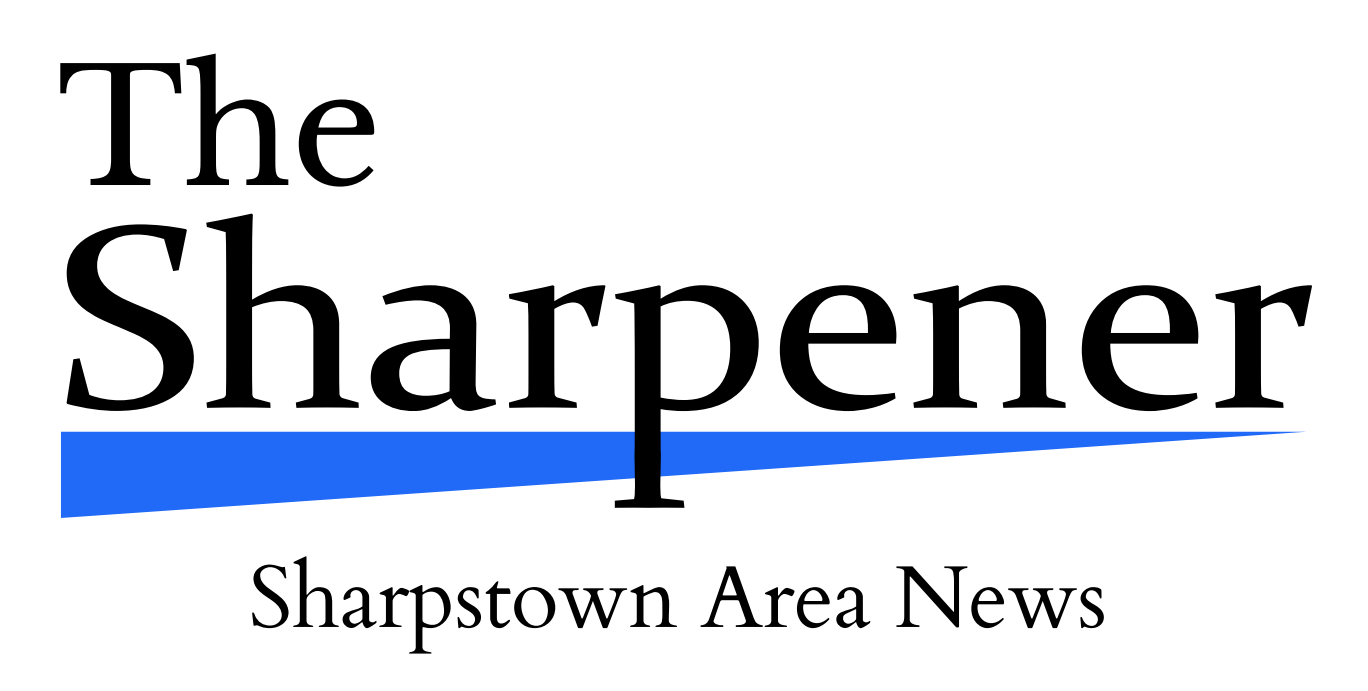
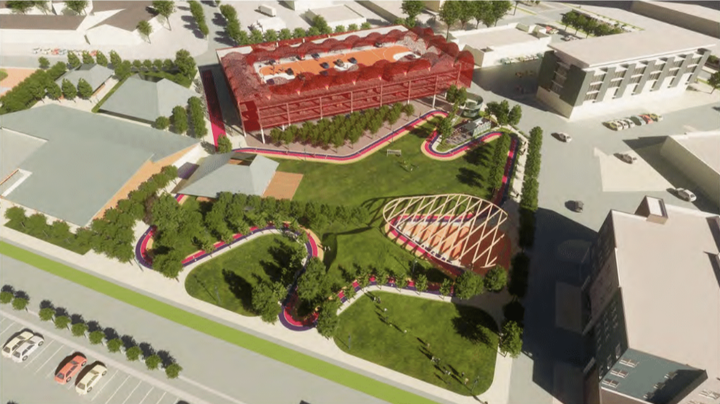
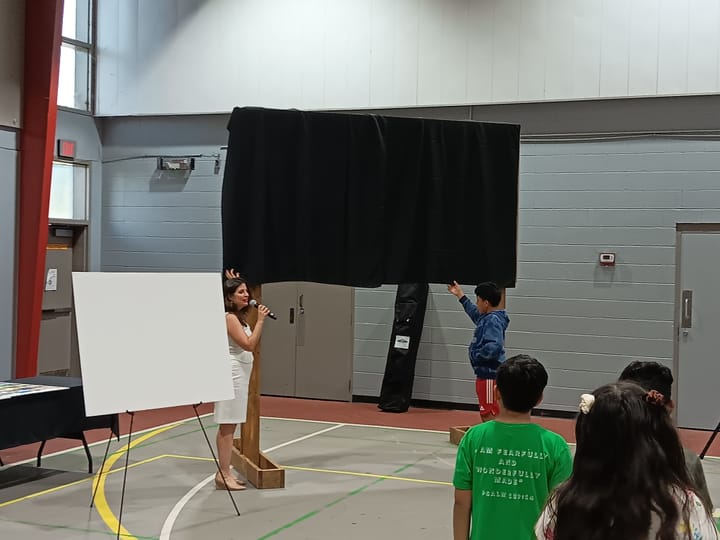
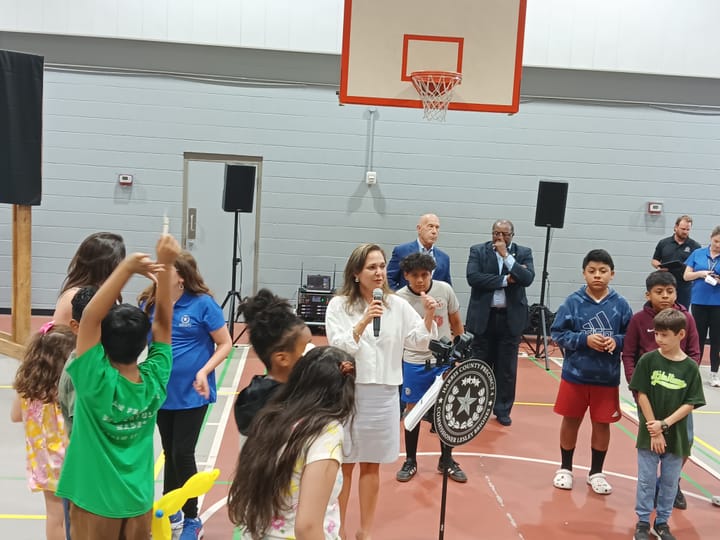
Comments ()